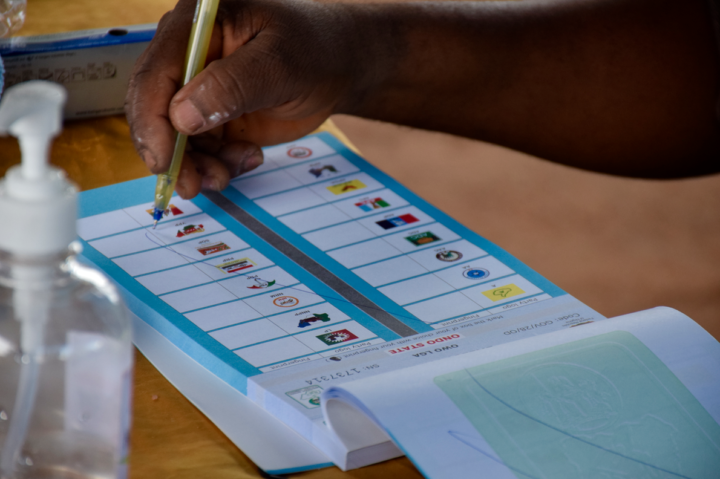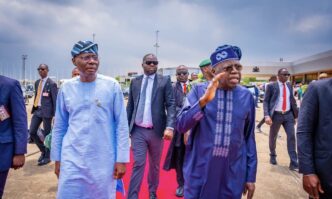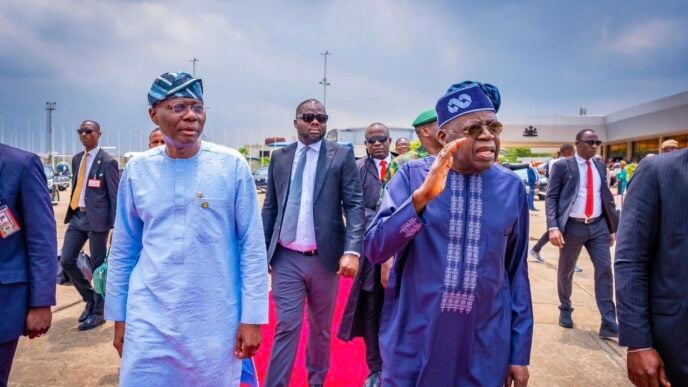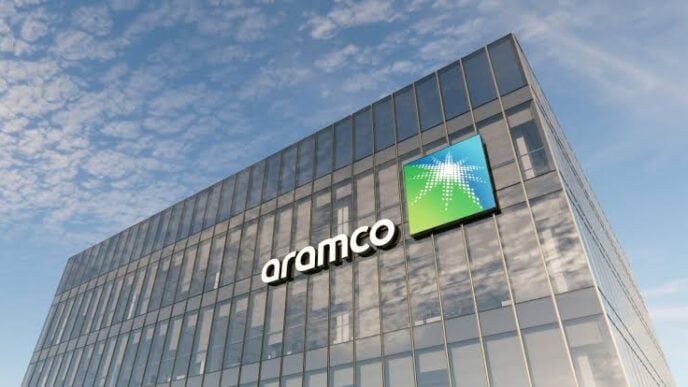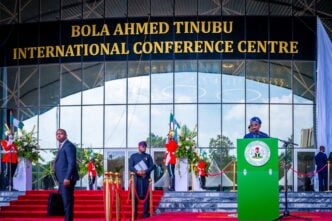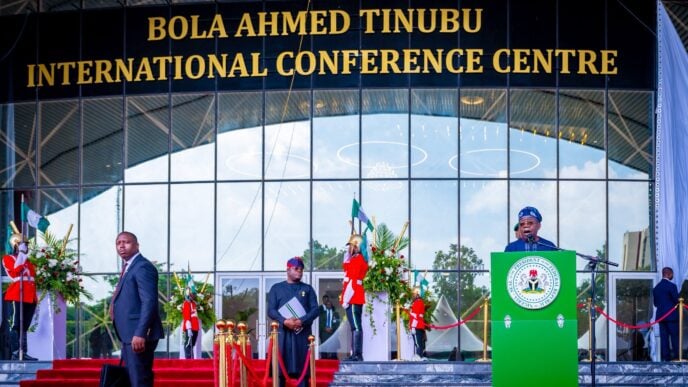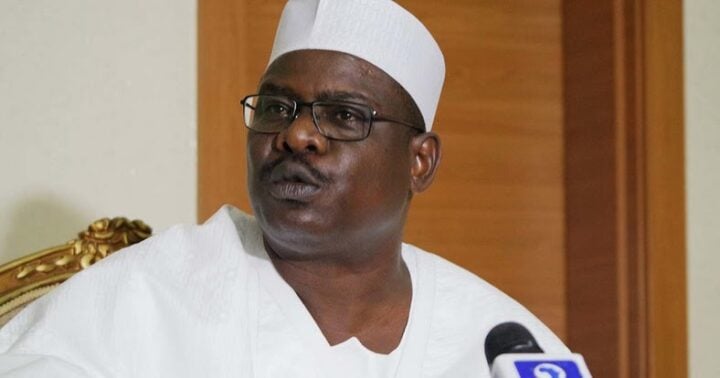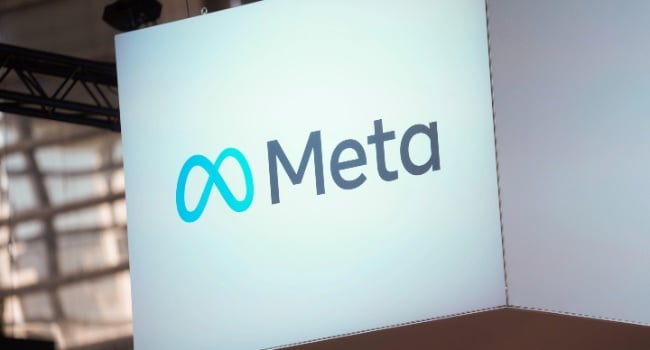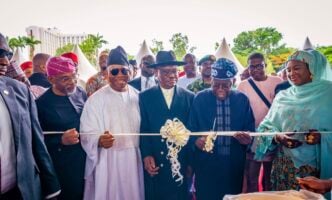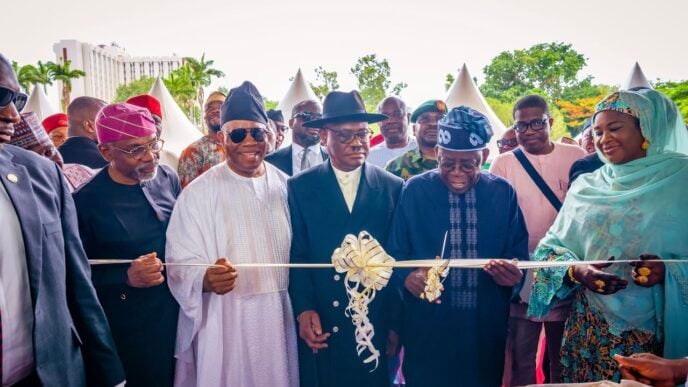In recent weeks, two major political developments have dominated headlines in Nigeria: A wave of defections and the endorsement of President Bola Tinubu for a second term.
As the country edges toward the 2027 general election, the political landscape is shifting rapidly. The ruling All Progressives Congress (APC) is enjoying a flurry of defections from the Peoples Democratic Party (PDP), Labour Party (LP), and other opposition platforms.
In April, Sheriff Oborevwori, the governor of Delta, crossed over from the PDP to the APC. Shortly after, nearly all the house of representatives members from the state followed suit.
Less than two months later, Umo Eno, governor of Akwa Ibom, also left the PDP for the APC.
Advertisement
At the federal level, about 30 lawmakers have switched allegiance to the APC in recent months.
While defections are a constant feature of Nigerian politics, the current exodus raises concerns about the opposition’s capacity to mount an effective challenge in the next elections. The cracks within the opposition parties are widening into chasms, sapping their strength and leaving them limping toward the high-stakes power battle in 2027.
PDP INTERNAL WRANGLING
Advertisement
The PDP is bogged down by a leadership dispute that began in the run-up to the 2023 elections, which political pundits say culminated in its eventual defeat.
One of the pre-election tinderboxes was the feud between Iyorchia Ayu, then-national chairman, and a bloc of five governors known as the Integrity Group, led by Nyesom Wike, governor of Rivers at the time.
The grievances stemmed from the outcome of the presidential primary election in May 2022, which they claimed Ayu manipulated to favour Atiku Abubakar.
The Integrity Group demanded Ayu’s resignation, insisting on a southern national chairman to balance the north-south power dynamic after the presidential candidate (Abubakar) emerged from the north.
Advertisement
Ayu’s refusal to step down deepened the rift, prompting the Integrity Group not to back the party’s presidential candidate, a blow that fractured the PDP’s unity and blunted its electoral edge.
The conflict between Ayu and Wike, and subsequently between their respective factions, became a prominent personality clash that dominated the party’s narrative and diverted attention from campaigns.
To many within the PDP, Wike—still a card-carrying member of the party while presently serving as minister of the federal capital territory (FCT) under the APC-led federal government—represents a major fault line.
Calls for his suspension or outright expulsion have grown louder. But Wike remains defiant, insisting no one can push him out, and boldly claiming he has done more for the party than anyone else.
Advertisement
Fast forward to June 2025, the PDP’s crisis shows no signs of abating. If anything, the turmoil has weakened the party, with members defecting in droves. As the countdown to the 2027 elections begins, all signs point to history repeating itself—disunity threatening to once again derail the party’s chances.
LABOUR PARTY LEADERSHIP TUSSLE
Advertisement
The Labour Party finds itself tangled in a messy power struggle, with Julius Abure, Lamidi Apapa, and Nenadi Usman locked in a contest for control. Until last month, a fourth individual, Callistus Okafor, also claimed to be the party’s chairman, before stepping away from the fray and resigning his membership.
The Labour Party’s leadership squabbles predate the 2023 elections, beginning after the death of Abdulkadir Abdulsalam in 2020, and the emergence of Julius Abure as chairman in 2021. Though there were tensions beneath the surface, the party managed to hold things together long enough to stage an audacious run in the 2023 polls, where Peter Obi, its standard-bearer, finished third with 6,101,533 votes.
Advertisement
But things got chaotic after the elections, with different factions emerging and staking claims to the chairmanship position.
In February 2024, Oluchi Oparah, the party’s national treasurer, accused Abure of misappropriating N3.5 billion, a claim the LP chairman denied while threatening legal action.
Advertisement
The allegation led to calls for Abure’s removal by party members.
Before then, a high court in Abuja had in April 2023, restrained Abure, Farouk Ibrahim, national secretary; Clement Ojukwu, national organising secretary; and Oparah from parading themselves as national officers of the party.
On September 4 2024, Usman was appointed to chair a 29-member caretaker committee at an event convened by Alex Otti, governor of Abia.
But in a judgment on October 8 2024, a federal high court affirmed the Abure-led leadership and a March 2024 Nnewi convention that re-elected Abure.
Emeka Nwite, the presiding judge, ordered INEC to recognise Abure as the legitimate chairman of the party.
In a judgment delivered on January 17 2025, the court of appeal ruled that its earlier decision in November 2024, recognising Abure as the party’s chairman, remains valid and has not been overturned by any court.
On April 4, the supreme court set aside the judgment of the court of appeal, stating that the appellate court lacked the jurisdiction to have affirmed Abure as chairman of the LP since the substance of the case was about the party’s leadership.
The apex court held that the issue of leadership is an internal affair of a party over which courts lack jurisdiction.
The supreme court’s judgement has become a Rorschach test for the LP, with factions reading it in starkly different ways. Abure’s camp claims it cements his leadership, while opponents insist it strips him of legitimacy. This legal haze has only deepened the party’s internal crisis.
OPPOSITION IN DISARRAY
The New Nigeria People’s Party (NNPP) is also embroiled in a fierce internal turmoil, grappling with a leadership schism that threatens its existence.
Frustrated by their internal turmoil, some opposition leaders have pointed accusing fingers at the ruling APC, claiming it engineered the instability in their parties.
The PDP alleged that Tinubu and the APC are plotting to push Nigeria into a one-party state, driven by fear of a possible defeat in 2027.
In a bid to counter the APC’s tightening grip on power, opposition heavyweights are exploring the formation of a coalition to mount a united challenge in the 2027 elections.
At the centre of these high-stakes talks is the African Democratic Congress (ADC), which is being considered as the coalition’s potential platform. Among the key figures at the negotiating table are Atiku Abubakar, Peter Obi, Nasir el-Rufai, and Rotimi Amaechi, former governors of Kaduna and Rivers, respectively.
COALITION TO THE RESCUE?
Tanko Yunusa, interim national coordinator of the Obidient Movement Worldwide, believes that if the coalition works as intended, it would defeat the ruling party in 2027.
“The opposition candidates are coming together to discuss the issues, and if that continues, it gives them more room to be able to challenge the status quo,” he told TheCable.
Though still in its early stages of formation, one factor that will prove daunting for the coalition is reconciling the ambitions and egos of the political titans involved.
Should the talks collapse, Obi may make another run on the LP platform. The Usman-led faction has already endorsed his involvement in the coalition discussions and reaffirmed its readiness to offer him the party’s ticket in 2027.
As for Abubakar, he remains politically nimble, likely to align with whichever platform offers him the clearest path to the presidency. Despite multiple unsuccessful bids, he remains confident in his electability.
At the subnational level, the political chessboard is also shifting. Aspirants who fail to secure APC tickets for the state and national assembly elections will likely return to the PDP and LP, or other parties, to clinch their tickets.
WHAT DOES 2027 PORTEND FOR THE OPPOSITION?
Analysts say the ongoing defections and unresolved leadership disputes are steadily hollowing out the opposition, and if the trends persist, they could create an uneven playing field in 2027, allowing the APC to coast through with little resistance.
“What this means is that if those parties are unable to manage their affairs, how can they manage Nigeria successfully?” Yèyé Bunmi Dipo-Salami, executive director, Baobab for Women’s Human Rights, told TheCable.
“It will be impossible to challenge the APC successfully if they do not put their houses in order without further ado. If they continue with this crab mentality to power grabbing, which is hindering their collective progress and making their parties toxic, 2027 will be a walkover for the APC.”
However, Kunle Lawal, executive director at Electoral College Nigeria, disagreed that defections and internal crises would leave the opposition parties too weak to challenge the ruling APC in 2027.
Lawal said opposition parties still govern some states, and multiple parties are represented in the national assembly, indicating a plural political environment.
He said political dynamics are unpredictable and often shift dramatically closer to elections, as seen in 2015 when the APC emerged just months before the general vote.
“So there is still a lot of time for a lot of things to happen. I think we should continue watching. I believe 2027 will be one of Nigeria’s most interesting elections. If I remember, in 2019, the only opposition that could stand the APC was the PDP. As of 2023, it became an NNPP and the LP,” he told TheCable.
Lawal added that the millions of opposition votes from previous elections could easily shift to other parties such as the ADC, Social Democratic Party (SDP), or Zenith Labour Party.
On his part, Yunusa blamed the “loopholes” in the 2022 Electoral Act for enabling defections, saying the legislation allows for political instability.
He called for a review of the law, adding that it is detrimental to Nigeria’s democratic development in its present shape. He said it would be a “herculean task” for the opposition to defeat the APC if they are not united.
Debo Ologunagba, spokesperson of the PDP, dismissed concerns over internal party disagreements and defections, asserting that the PDP remains the most institutionally grounded party in Nigeria, with a strong constitution and mechanisms to resolve internal conflicts.
Ologunagba said that varying interests within the PDP are typical in a democratic environment.
He said defections are not a significant threat to the PDP’s stability or electoral prospects, adding that the focus should be on the real issues affecting Nigerians.
“The razzmatazz and noisemaking about somebody defecting or not is not what will determine the election,” he told TheCable.
Ologunagba argued that Nigerians will use the election to judge whether their lives have improved or deteriorated under the APC, pointing to economic decline, rising unemployment, and weakening purchasing power as key concerns that will influence voter decision.
